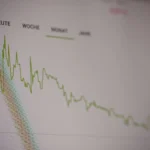The banking sector in 2025 is navigating a storm of regulatory crackdowns, financial recalibrations, and shifting compensation structures. With fines, fraud probes, and policy shifts shaping the industry, major institutions are adjusting to tighter oversight and changing market conditions.
Regulatory Fines Hit Major Banks
Four major banks—Citi, HSBC, Morgan Stanley, and Royal Bank of Canada—have been fined over £100 million by the UK’s Competition and Markets Authority (CMA) for unauthorized information sharing in government bond trading. Traders used Bloomberg chatrooms to exchange sensitive market data, a violation of competition rules. Deutsche Bank, also involved, avoided penalties by cooperating early. The case highlights intensified regulatory scrutiny on financial markets.
Meanwhile, UK policymakers are considering giving banks access to welfare claimants’ accounts to prevent fraud. Under the proposal, banks would flag accounts exceeding £16,000 in savings, a move critics say raises privacy concerns while supporters argue it could protect public funds.
Lloyds Takes a Hit from Mis-Selling Scandal
Lloyds Banking Group has set aside £700 million in provisions following a probe into mis-sold car financing products. The scandal has slashed the bank’s quarterly profits, falling to £824 million from £1.8 billion the previous year. Despite this, Lloyds is pushing forward with a £4 billion modernization strategy, cutting costs while expanding into wealth management. It also announced a £1.7 billion share buyback program, signaling confidence in long-term stability.
Standard Chartered Challenges EU Bonus Caps
Standard Chartered CEO Bill Winters has criticized the EU’s banker bonus cap, arguing it has led to “grotesque” increases in fixed salaries. With the UK now scrapping the cap, the bank has restructured compensation, lowering fixed pay while boosting performance-based incentives. Winters’ potential earnings for 2025? £13.1 million—if he meets key performance targets.
ECB Posts Record Losses as Interest Costs Soar
The European Central Bank (ECB) has reported a record €7.9 billion loss for 2024, driven by higher interest payments on deposits following rate hikes aimed at controlling inflation. Despite the hit, the ECB insists its monetary policy remains stable and expects a return to profitability in coming years.
Citigroup Scales Back DEI Initiatives
Citigroup is rolling back its diversity, equity, and inclusion (DEI) policies, following a trend among US corporations responding to shifting political and legal landscapes. The bank has halted diversity hiring targets and will no longer require diverse candidate slates or interview panels unless legally mandated. CEO Jane Fraser cited the changing political climate as a reason for reassessing the company’s DEI strategy.
What’s Next?
- Regulators are cracking down on misconduct, and banks will have to tighten compliance efforts.
- Compensation structures are evolving, especially in the UK, where bonus caps are being reconsidered.
- Financial institutions are reassessing priorities, balancing shareholder returns with regulatory risks.
Bottom Line
The global banking industry is under pressure to adapt, comply, and strategize. Whether it’s regulatory fines, executive pay battles, or financial missteps, banks that fail to adjust quickly risk falling behind in an increasingly unforgiving market.






